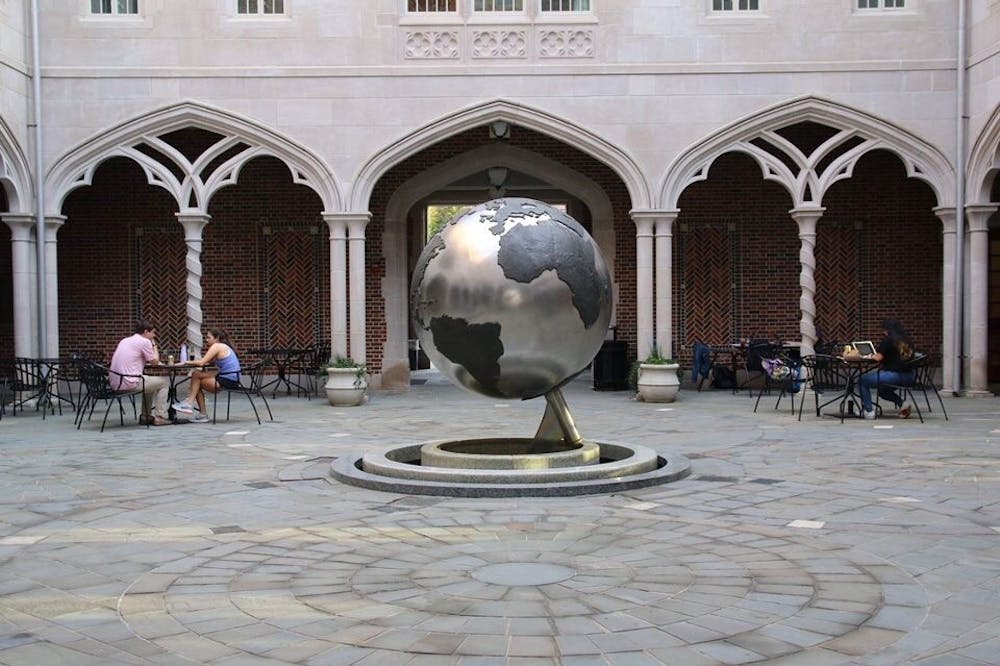The Center for Global Engagement eliminated the $1,000 travel stipend amid a spike in students studying abroad in the last five years.
The decision was announced over the summer with the renaming of the center and will go into effect for students admitted to University of Richmond in 2026.
“Our numbers of students (studying abroad) has skyrocketed since the pandemic,” Ellen Sayles, associate dean and director of education abroad, said.
The center’s series of changes in recent years reflect the rising popularity of study abroad at UR — establishing the popular EnCompass programs, international internship opportunities and summer study abroad programs. Almost 400 students are studying abroad this fall and close to 100 more students plan to study abroad in the spring.
The stipend, or tuition reduction, was first implemented to encourage more students to study abroad, but with the spike in interest, the center can no longer cover the cost of the stipend, Sayles said.
“The challenge [was] managing the budget with an increasing number of students,” Sayles said. “Since the purpose of the travel allowance was to encourage more students to study abroad.”
The stipend was intended to address costs associated with studying abroad such as visa fees and the higher costs associated with living and learning in a new environment. However, some students were not aware that the travel allowance existed when deciding to go abroad.
“I wasn’t notified that I was getting that money, " senior Chloe Goode said. “It wasn’t told to me explicitly by anyone.” Goode was a part of the SIT (School for International Training) International Honors Program last spring and spent time in New York City, Argentina, Spain and South Africa.
Senior Charlie Fisher, who spent last fall in Argentina and the spring in Brazil, said the elimination may impact other costs associated with study abroad, including food, cultural experiences and travel.
“To have $1,000 taken out is kind of a big deal because it could be spent on food,” Fisher said. “That was something I struggled with.”
Fisher added that her enrichment and travel experiences were a little different from many other students as she says, “I stayed in-country because I really wanted to get to know that culture and society and $1,000 can get you a lot of places.”
While abroad, Goode also went on weekend excursions and worries that the elimination will affect opportunities to travel while abroad.
Enjoy what you're reading?
Signup for our newsletter
“We did a safari in South Africa, we did horseback riding, different things like that just enhance the experience,” she said. “I think it would probably influence those kinds of excursions or things you’d be able to do if you don’t have that kind of discretionary income.”
While some students worry about the impact of the elimination, resources still exist to make sure that study abroad remains an accessible opportunity, Sayles said.
“The university covers a student’s full need for the study abroad semester and that includes creating a new cost of attendance package that includes additional travel costs and adjusts for housing costs,” she said. "Because we meet 100% of the need and the costs for the abroad semester are adjusted, students should be able to meet their abroad expenses through their financial aid packages.”
Even without the travel allowance, Fisher believes that study abroad will remain an affordable option, and a semester abroad may be cheaper than a semester at UR. “It’s a lot more affordable to study abroad and it’s not marketed like that,” Fisher said, “I feel like people could be more open about that.”
Contact news writer Jeremy Young at jeremy.young@richmond.edu
Support independent student media
You can make a tax-deductible donation by clicking the button below, which takes you to our secure PayPal account. The page is set up to receive contributions in whatever amount you designate. We look forward to using the money we raise to further our mission of providing honest and accurate information to students, faculty, staff, alumni and others in the general public.
Donate Now



